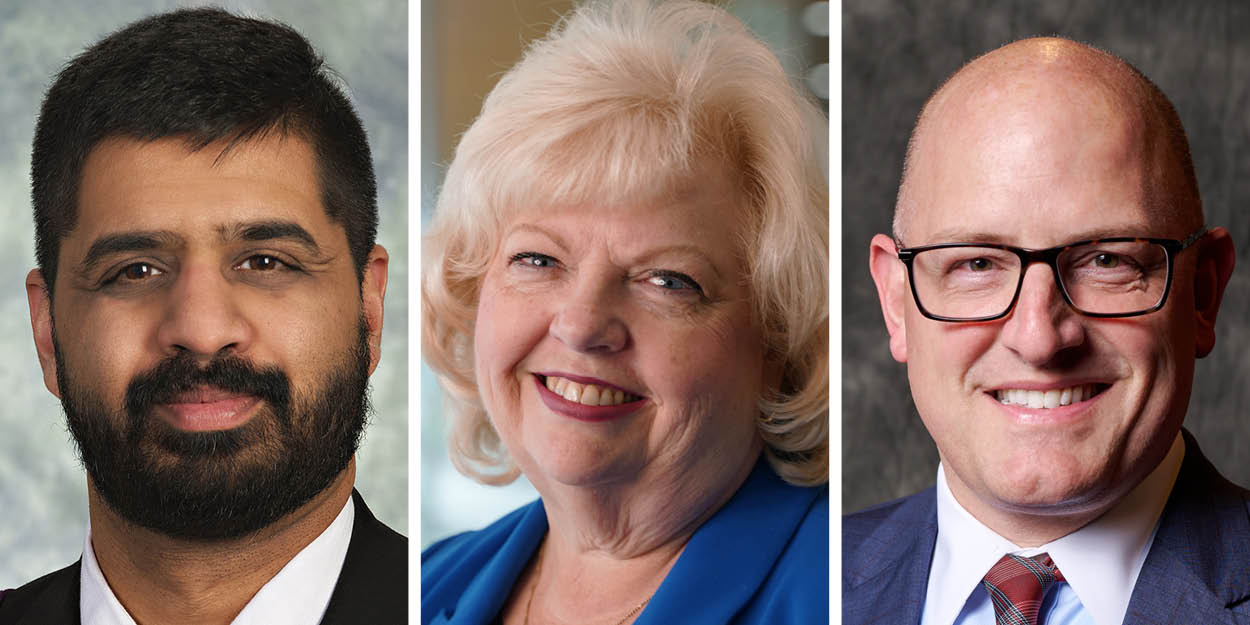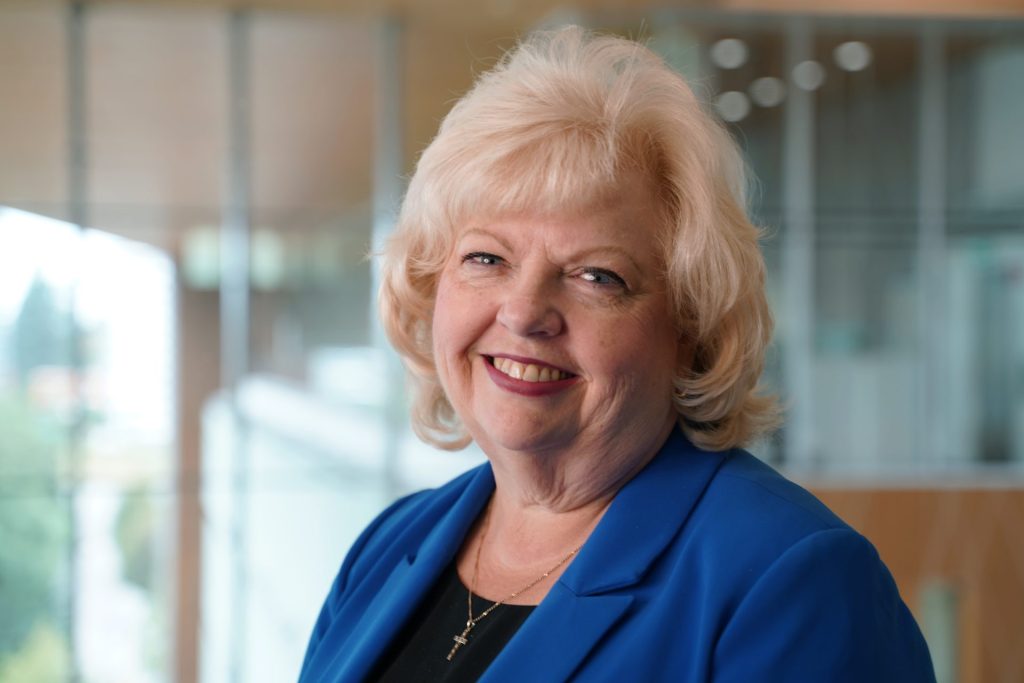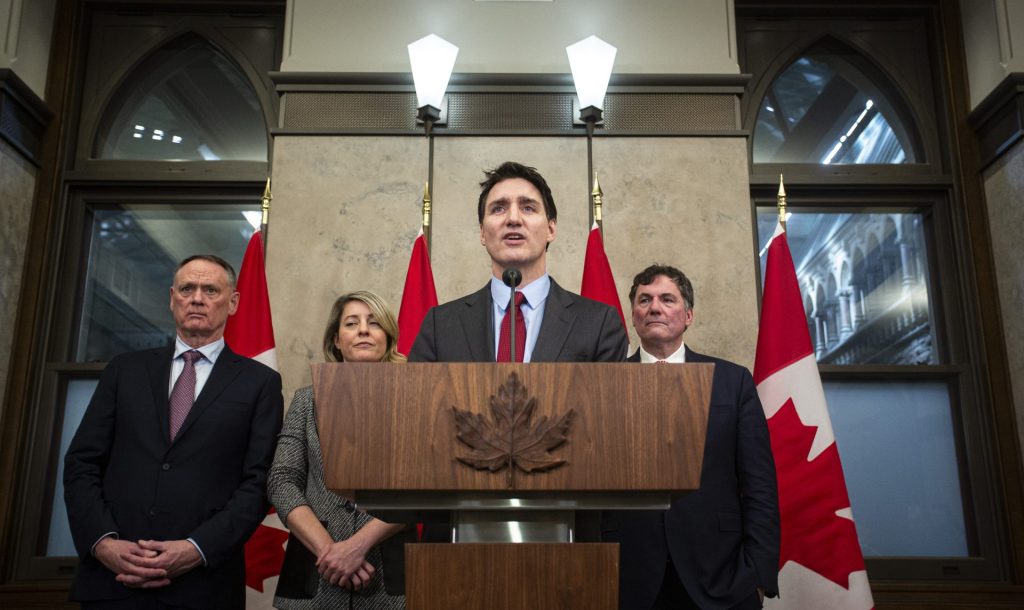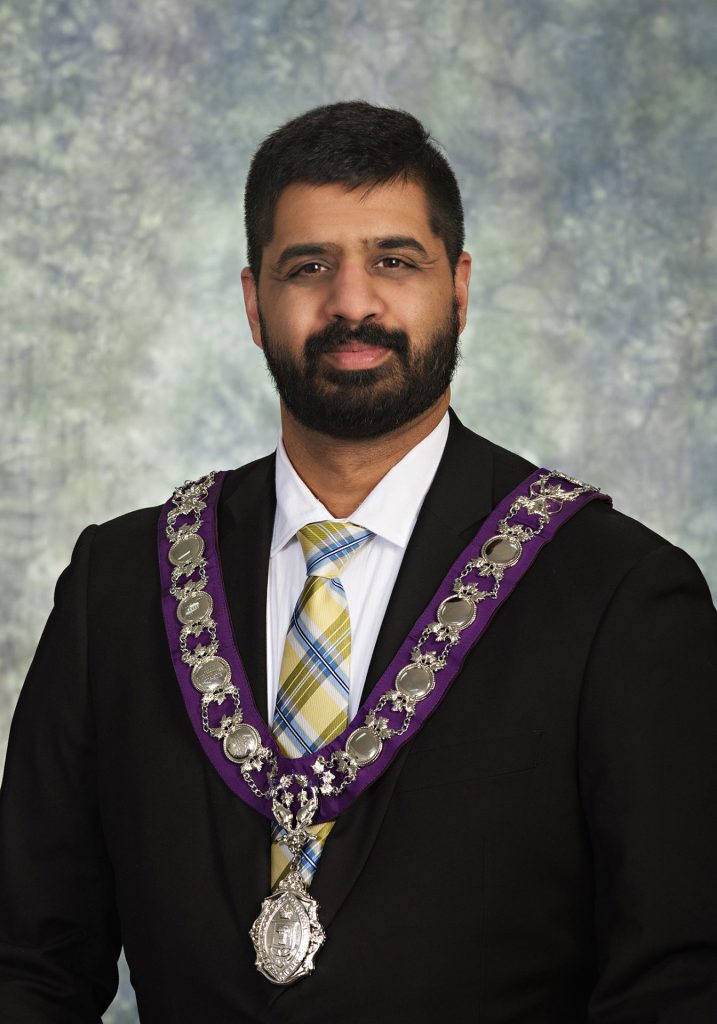Border-town mayors fear being ‘hit first and worst’ amid trade war uncertainty

With hundreds of jobs and billions of dollars worth of trade on the line, mayors from three of Canada’s border towns say their communities could face the worst impacts of a trade war sooner than other parts of the country.
The top politicians in two cities in Ontario and one in British Columbia all told The Hill Times they are “deeply concerned” with the ongoing threat of American tariffs, and the immediate and “severe” repercussions their communities would face if implemented.
On Feb. 3, the day before 25-per-cent tariffs on Canadian goods entering America were set to take effect, U.S. President Donald Trump walked back the threat, giving this country a 30-day reprieve. Canada also cancelled its plans to apply a similar levy on $30-billions of goods. The news came after the second phone call that day between the two leaders, after which Prime Minister Justin Trudeau (Papineau, Que.) announced several border-related actions like more equipment and personnel, even though much of that had already been announced in December as part of Ottawa’s $1.3-billion border plan.

Speaking on Feb. 3, Windsor Mayor Drew Dilkens said his southern Ontario city’s workforce and economy would feel substantial repercussions as the “auto capital of Canada.”
“The impact on our country, and the impact on communities like mine, is significant, severe, and will be felt almost immediately.”
There are tens of thousands of auto workers in Windsor, so had the tariffs gone through, Dilkens said he would expect job losses, potentially within weeks. Windsor is across the border from Detroit, Mich., America’s auto manufacturing hub. The supply chains for vehicle production are intertwined between the two cities.
“What we are really worried about is that when a 25-per-cent tariff gets applied to a vehicle, the demand plummets, and so more manufacturers like Ford and General Motors may not produce as many vehicles and start laying off people … and that will have a cascading effect on the economy on both sides,” he explained.
Cars are not on the same priority level as groceries for families, and so buyers could wait out the tariffs, potentially driving down sales, Dilkens noted.
Additionally, Windsor is a part of Essex county, which is home to a large greenhouse industry that produces vegetables like tomatoes, green peppers, and cucumbers that are sold by large grocery chains like Costco, said Dilkens. Eighty-five per cent of this produce is exported to the U.S., and tariffs would cause higher prices, leading to less trade in that industry, and lowering Essex’s trade revenues, he said.

Mayor Brenda Locke is facing similar challenges in Surrey, B.C. She said Surrey would be “hit first and worst” by the impending trade war, for which she is “deeply concerned on many levels.”
“The most challenging part is that this is really a threat to Canadian sovereignty,” she added. “For me, that is devastating, and it tells me we have to stand up for Canada in a very major way. We have to protect our country. We have to wrap ourselves in the red and white, and make sure that we’re buying [from] Canada.”
The town has the largest border crossing in Western Canada, and has ports and a major CN Rail train depot that are collectively involved in much of the shipping of goods to the western U.S.
Trucking is also a large part of Surrey’s local economy. Locke said the city’s truckers are “very concerned,” since a lot of what they transport goes south through the Interstate 5 highway that stretches from Alaska to California via British Columbia.
“The other issue we have is we have a lot of industrial land, and about 20 per cent of our businesses directly ship to the United States,” Locke added.

As per details shared by the mayor’s office, the prominent industries in Surrey that are likely to be affected by the tariffs include those that produce wood products, minerals, electricity, automobiles, agriculture, and seafood.
With more than 960 manufacturing businesses and approximately 23,535 related workers, Surrey’s manufacturing sector is among the city’s largest industries, the document reads.
Surrey’s 113 import/export businesses, and 900 transportation and warehousing firms may additionally experience “spillover consequences from disruptions in manufacturing and exporting activities.”
Back in Ontario, Cornwall Mayor Justin Towndale said his city has several companies producing food products that are exported to the U.S., such as the Leclerc biscuit and cookie maker, and Olymel, which has a bacon plant in the town.
There are also other companies and manufacturing facilities owned by American subsidiaries that send back goods to the U.S.

With tariffs being imposed on such products, these industries in Cornwall may resort to layoffs if demand were to shrink. Towndale said hundreds of jobs could face the axe.
As for Trump’s claims that illegal immigrants and drugs pass through Canada’s borders into the U.S., all three mayors said they believed the problem was not large in scale, and certainly not big enough to become the pretext for such economy-crushing tariffs.
On the contrary, Dilkens said his town gets an influx of illegal firearms and asylum seekers from America.
“I’ve got 750 [asylum seekers] living in the city of Windsor in hotels right now that have crossed because they made their way here from the southern border of the U.S.”
Locke said British Columbia, too, sees drugs and firearms coming into the region from across the American border, which in her view, could do with more security. The city’s ports, especially, are currently left unprotected, as there is no port police, which the city once had several years ago, she said.
While she said the federal government’s $1.3-billion border security plan is a step in the right direction, in her view it covers eastern borders more than the western regions.
Mayors from about 20 such towns in Canada formed an alliance to represent grassroot voices in the tariff talks. One of their goals, according to Dilkens, is to reach out to American mayors and officials at their closest borders, and collectively amplify local voices.
“We would rather fill in and be part of a solution being offered nationally because we believe in that Canada-first approach,” he added.
The mayors themselves are considering retaliatory measures to support local businesses and communities if the tariffs are imposed.
In Windsor, Dilkens said he may cancel a city bus going to Detroit every hour of every day carrying an estimated 80,000 passengers every year, with the aim of curbing residents from travelling to the American city for tourism.
Locke noted she is appealing to the provincial and federal governments to cut down internal trade barriers.
“I just sent a letter to our premier, and I asked him to take a look at reducing the gasoline tax and our provincial sales ta,” she said. “We almost need to take those kinds of COVID measures to support residents and businesses.”
A version of this story first appeared in Politics This Morning, your go-to source for insider news, analysis, and updates on where all the key political players are that day. Get more insider coverage directly to your inbox from The Hill Times’ editor Peter Mazereeuw and reporter Riddhi Kachhela in this subscriber-only daily newsletter. Sign up here.
rkachhela@hilltimes.com
The Hill Times






 LICENSING
LICENSING PODCAST
PODCAST ALERTS
ALERTS













